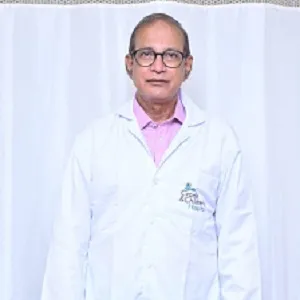General Pediatrics is a branch of medicine that focuses on the health and well-being of children from birth until their teenage years. Pediatricians are specially trained to diagnose and treat a wide range of childhood illnesses and conditions.
What Does a General Pediatrician Do?
General Pediatricians provide routine health care to children, including physical exams, vaccinations, and preventive health care. They also diagnose and treat a variety of illnesses, injuries, and medical conditions, such as allergies, asthma, diabetes, and infections.
General Pediatricians diagnose and treat a wide range of diseases and conditions in children, including:
- Respiratory illnesses like asthma and pneumonia
- Infectious diseases like measles, mumps, and chickenpox
- Skin conditions like eczema and acne
- Mental health conditions like depression and anxiety
- Gastrointestinal issues like constipation and acid reflux
- Endocrine disorders like diabetes and thyroid disorders
The symptoms of these diseases vary depending on the condition. For example, the symptoms of asthma include wheezing, coughing, and shortness of breath, while the symptoms of diabetes include frequent urination, thirst, and hunger.
Visiting Schedule
All children should see a General Pediatrician regularly for routine health care, including physical exams and vaccinations. Children who have specific health concerns or conditions should see a General Pediatrician as well as a specialist in that area.
Types Of Tests You May Be Recommended
General pediatricians may recommend various tests for children, depending on their age, medical history, and any symptoms they are experiencing. Some common tests include:
- Blood tests - to check for anaemia, infection, or other conditions.
- Urine tests - to screen for kidney disease or infection.
- Vision and hearing tests - to detect any vision or hearing problems.
- Developmental screenings - to check for developmental delays or disabilities.
- Imaging tests - such as X-rays, CT scans, or MRIs, to diagnose certain conditions.
- Allergy testing - to identify any allergens that may be causing symptoms.
- Lead screening - to detect lead poisoning, which can cause developmental and behavioural problems.
Preparing for the Test
Before your child undergoes a test, you should keep some general pointers in mind. Make sure your child is well-rested, hydrated, and has eaten a healthy meal before the test. You should also talk to your child about the test and prepare them for the procedure.
What to Expect from the Test
The experience of going through a test varies depending on the type of test your child is undergoing. Some tests, such as a blood test, involve a small needle and a small amount of blood being drawn. Other tests, such as an X-ray, involve your child lying down on a table while a machine takes pictures of their body. The pediatrician or nurse will explain the test to you and your child beforehand and make sure that they are comfortable throughout the test.
Conclusion
Regular check-ups with a General Pediatrician are crucial for maintaining your child's overall health and well-being. By being prepared for the visit and understanding the importance of regular check-ups, you can help ensure your child stays healthy and grows up to be a happy, thriving adult.
Request an appointment at Apollo Cradle, Hyderabad - Jubilee Hills. Call 1860-500-4424 to book an appointment.
Your child should receive their first check-up within a few days of birth, followed by regular check-ups at 1, 2, 4, 6, 9, 12, 15, 18, 24, and 30 months, and annually thereafter.
During a general pediatrics visit, the pediatrician will perform a physical exam, ask about your child's medical history, and discuss any concerns you may have. Your child may undergo various tests to diagnose or screen for certain conditions.
Most tests are safe and carry minimal risks. The pediatrician or nurse will explain the test to you and your child beforehand and make sure that they are comfortable throughout the test.
If your child is diagnosed with a disease or condition, the General Pediatrician will discuss treatment options with you. Treatment may include medication, lifestyle changes, or referral to a specialist for further evaluation and management. It is important to follow the pediatrician's recommendations and attend any follow-up appointments.
Our Doctors
Treatments
- Anaesthesia & Pain Management
- General Pediatrics
- Growth Chart
- Newborn Screening
- Pediatric Allergy
- Pediatric Dermatology
- Pediatric Endocrinology
- Pediatric Nutrition
- Pediatric Orthopedics
- Pediatric Psychology
- Pediatric Surgery & Urology
- ROP Screening
- Stem Cell Banking
- Vaccination/Immunisation Schedule

 95% Patient Satisfaction Score
95% Patient Satisfaction Score










